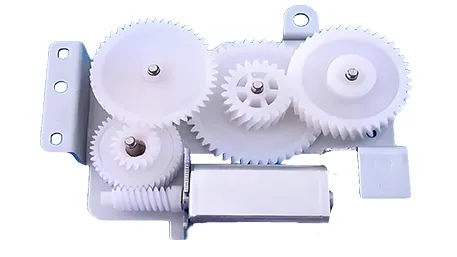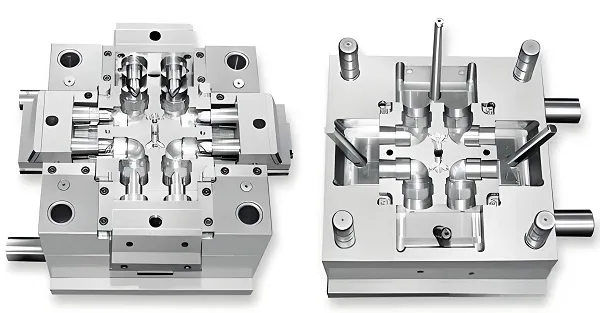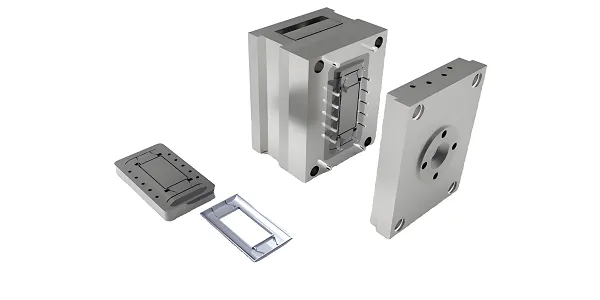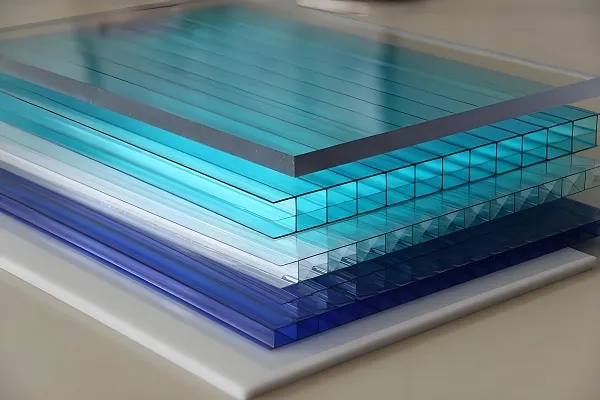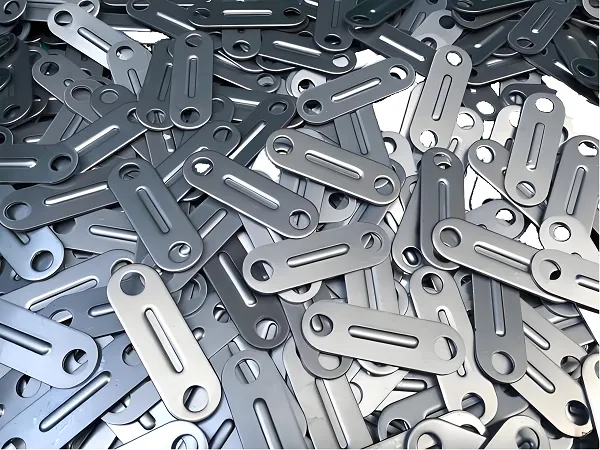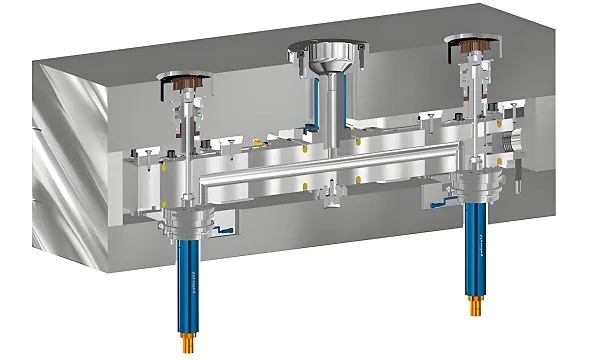In high – tech fields such as medical equipment, aerospace, and semiconductors, polyetheretherketone (PEEK) has become the material of choice for critical components due to its excellent properties such as high – temperature resistance, high strength, and biocompatibility. This article will analyze how to create high – precision and highly reliable customized PEEK plastic parts from dimensions such as service value, core processes, and quality assurance.
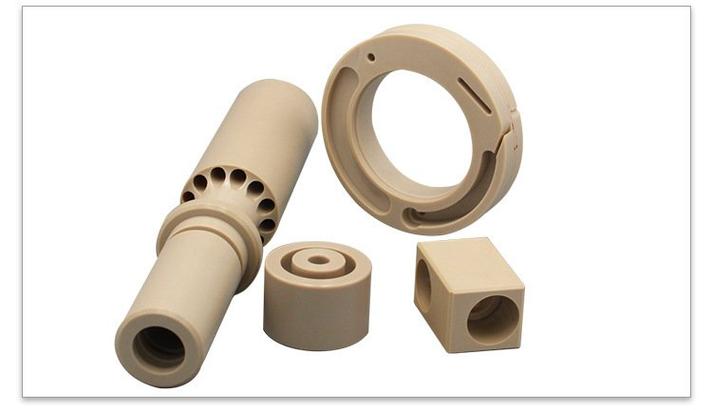
I. Why is Traditional Processing Difficult to Meet the Requirements of PEEK Parts?
Q&A: What are the core advantages of the CNC processing service for customized PEEK plastic parts?
Traditional processing methods have three core pain points when dealing with PEEK plastic parts:
Traditional processing methods have three core pain points when dealing with PEEK plastic parts:
- Difficulty in ensuring precision: PEEK material has a high coefficient of thermal expansion (8.5×10⁻⁵/℃). During traditional processing, the parts deform due to cutting heat, and the dimensional tolerance often reaches ±0.15mm, which cannot meet the high – precision requirements of medical implants (±0.03mm) and aerospace precision components (±0.02mm).
- Low processing efficiency: PEEK has high hardness (Rockwell hardness 100HRR) and strong wear resistance. Ordinary cutting tools wear severely, with a cutting speed of only 30 – 50m/min. The processing cycle is 3 – 5 times longer than that of ordinary plastics, and the unit processing cost increases by 60% – 80%.
- Inadequate functional adaptation: Standardized processing is difficult to meet the requirements of complex structures (such as thin – walls, deep cavities, micro – structures) and special properties (antistatic, high purity), resulting in parts not being able to fully utilize the characteristics of PEEK materials and affecting the overall performance of the product.
However, the CNC processing service for customized PEEK plastic parts takes “high precision, high performance, and high adaptation” as the core:
- Full – dimensional precise customization:
- Dimensional accuracy assurance: Using low – temperature cooling (-20℃) and minimum quantity lubrication technology, combined with high – precision CNC equipment (positioning accuracy ±0.005mm), the dimensional tolerance of parts is controlled within ±0.01mm, meeting the strict requirements of medical, aerospace, and other fields.
- Material performance optimization: By optimizing cutting parameters (cutting speed 80 – 120m/min, feed rate 0.05 – 0.1mm/r) and tool paths, internal stresses in the material are reduced, and properties such as tensile strength (≥100MPa) and flexural modulus (≥3.8GPa) of the parts are stabilized, with a deviation of less than 3%.
- Data – driven efficient processing: Based on the part’s usage scenarios (such as high – temperature, highly corrosive environments) and functional requirements, processing processes are optimized through simulation software, shortening the processing cycle by 30% – 40% while reducing material waste by 25%.
II. How Does the Core Process of CNC Processing for Customized PEEK Parts Achieve Breakthroughs?
- Innovation in special – purpose tools and fixtures
- High – performance tool materials: Use nano – coated carbide tools (TiAlN coating thickness 2 – 3μm) and PCD (polycrystalline diamond) tools. The hardness is increased to HV3000 – 5000, wear resistance is enhanced by 5 times, the cutting speed is increased to 150m/min, and the tool life is extended to 8 – 10 hours.
- Customized fixtures: In view of the easy – deformation characteristics of PEEK parts, design vacuum – adsorption fixtures (suction force ≥ 80kPa) and elastic fixtures to reduce clamping stress. For thin – wall parts (wall thickness ≤ 0.5mm), adopt a split – type support structure to prevent vibration – induced deformation during processing.
- Precision CNC processing technology
- Five – axis simultaneous machining: Use a five – axis CNC machining center (spindle speed 24,000rpm) to complete the processing of complex curved surfaces, inclined holes (angle accuracy ±0.01°), cross – grooves, etc. in one clamping, avoiding multiple – clamping errors and improving processing accuracy by 40%.
- Micro – milling processing: Equip with micro – milling equipment with a micron – level resolution (0.1μm) to achieve the processing of 0.1mm small – diameter holes and 0.2mm narrow slots, meeting the micro – structure requirements of the semiconductor and medical fields, with a surface roughness Ra≤0.4μm.
- Cryogenic processing technology: Through a liquid – nitrogen cooling system (-196℃), the temperature of the cutting area is controlled below 50℃, suppressing the softening and deformation of PEEK materials, while reducing tool wear and improving the processing surface quality by 50%.
- Digital processing control system
- Processing simulation optimization: Use VERICUT software to simulate the CNC processing process, predict the distribution of cutting force and cutting heat, optimize tool paths and cutting parameters, reduce the number of trial – cuts by 90%, and avoid material waste and processing accidents.
- Intelligent parameter adjustment: Real – time collect more than 50 parameters such as spindle power, cutting force (accuracy ±1N), and tool vibration (resolution 0.1μm). The AI algorithm automatically adjusts the feed rate and cutting depth to compensate for tool wear and ensure stable processing accuracy.
- Digital – twin monitoring: Create a digital – twin model for each processed part, real – time track processing progress and quality data, predict the trend of processing errors, and adjust the process in advance, increasing the product qualification rate from 80% to 96%.
III. Quality Control: Stringent Verification throughout the Chain from Design to Delivery
- Multi – dimensional performance testing system
- Material – level screening:
- Component analysis: Detect the purity of PEEK materials through Fourier – transform infrared spectroscopy (FT – IR) and nuclear magnetic resonance (NMR), ensuring that the impurity content is less than 0.05% and meeting standards such as ISO 10993 (medical – grade) and ASTM D638 (engineering – grade).
- Physical property testing: Measure indicators such as melt flow index (30 – 40g/10min), heat – deflection temperature (340℃), and tensile strength, with the error from the standard value controlled within ±2%.
- Product – level testing:
- Dimensional inspection: Use a coordinate – measuring machine (accuracy ±0.003mm) to detect key dimensions and geometric tolerances (roundness ≤ 0.005mm). For small parts, use a scanning electron microscope (SEM) for nano – level dimensional analysis.
- Mechanical properties: Use a universal material testing machine to detect tensile, bending, and compression properties. The fatigue test simulates 10⁷ cycles without fracture. Medical implants need to undergo additional cytotoxicity and hemolysis rate tests.
- Surface quality: Use a white – light interferometer (accuracy 0.1nm) to measure surface roughness, and a microscope (500 – times magnification) to detect surface micro – defects, ensuring no cracks, burrs, etc.
- Material – level screening:
- Intelligent defect – prevention technologies
- First – piece ten – inspection system: The engineering team strictly inspects 35 indicators of the first – piece part, such as material batch, tool parameters, and processing dimensions, intercepting potential defects.
- Real – time process monitoring: Through a tool – wear monitoring system (resolution 0.001mm) and vibration sensors, give real – time warnings of abnormalities such as tool breakage and cutting chatter, automatically stop the machine and replace the tool to prevent batch non – conformities.
IV. How to Balance Efficiency and Cost in Customized Processing?
Q&A: Does high – precision PEEK processing mean high cost and low efficiency?
Through three innovative models, the customized processing of PEEK parts achieves a 30% – 40% cost reduction and a 50% increase in processing efficiency:
Through three innovative models, the customized processing of PEEK parts achieves a 30% – 40% cost reduction and a 50% increase in processing efficiency:
- Tool – life optimization: Use coated tools and an intelligent tool – management system to predict tool life (error < 5%), replace tools in advance, reduce downtime by 20%, and reduce tool costs by 35%.
- Process integration innovation: Integrate multiple processes such as milling, drilling, and grinding on a single five – axis device, reducing the number of clamping times, increasing processing efficiency by 40%, and at the same time reducing equipment and labor costs.
- Digital – twin cost reduction: Optimize the processing process through a digital – twin model, reduce 3 – 4 physical debugging times, save 40% of time costs, and reduce material waste and rework costs.
V. Core Considerations for Choosing CNC Processing Services for Customized PEEK Plastic Parts
- Equipment and technical strength: The supplier should have five – axis CNC machining centers, cryogenic processing systems, micro – milling equipment, as well as core technologies such as nano – coated tools and vacuum – adsorption fixtures.
- Industry – certification qualifications: Have certifications such as ISO 13485 (medical) and AS9100 (aerospace), as well as third – party test reports, ensuring that products meet industry standards.
- Digitalization ability: Have processing simulation software, intelligent monitoring systems, and digital – twin technologies to achieve full – process data – driven and ensure efficient and controllable processing.
Conclusion
The CNC processing service for customized PEEK plastic parts, driven by professional technology and intelligent management, overcomes the processing difficulties of PEEK materials and provides high – precision and high – performance customized part solutions for fields such as medical, aerospace, and semiconductors. In the trend of increasingly strict requirements for material performance and processing accuracy in the high – end manufacturing industry, the customized processing service with “specialized processes + precision equipment + full – chain quality control” is becoming a key force in promoting the innovative development of the industry. From the precise manufacturing of medical implants to the reliable production of aerospace critical components, the CNC processing service for customized PEEK parts will continue to help enterprises achieve technological breakthroughs and product upgrades with excellent precision and quality.
(Contact us immediately to obtain a customized CNC processing solution for PEEK plastic parts and a free process evaluation service)
(Contact us immediately to obtain a customized CNC processing solution for PEEK plastic parts and a free process evaluation service)

